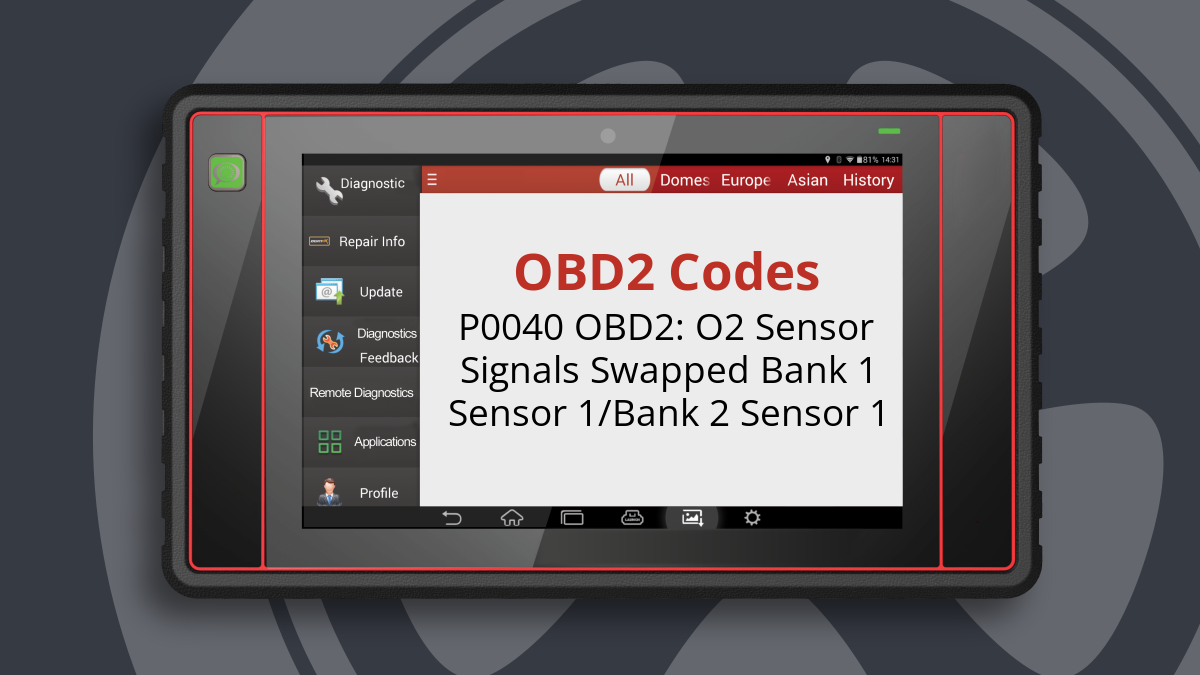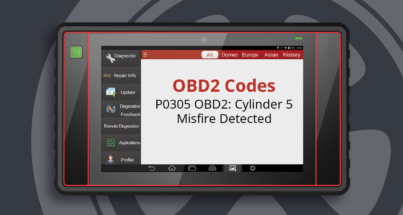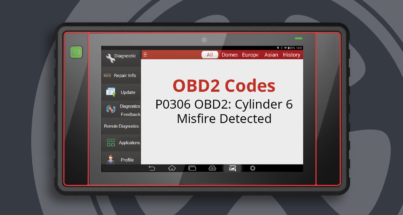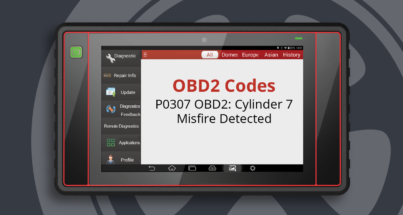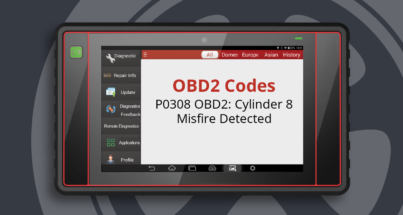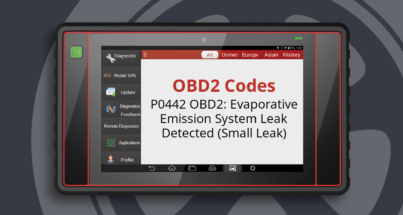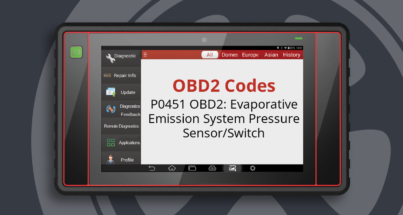What Does the P0040 Code Mean?
The P0040 code indicates a malfunction in the oxygen sensor signals, specifically that the signals from Bank 1 Sensor 1 and Bank 2 Sensor 1 have been swapped. This can lead to incorrect readings and poor engine performance.
What Causes the P0040 Code?
This code is typically triggered when the engine control module (PCM) determines that the wiring harnesses from the oxygen sensors have been crossed. Each bank of the engine has its own oxygen sensor, and when the signals are misrouted, the PCM sets the P0040 code.
What Are the Symptoms of the P0040 Code?
- Decreased engine performance
- Increased fuel consumption
How Serious Is the P0040 Code?
The P0040 code is classified as urgent. It indicates a significant malfunction that can lead to severe engine damage or pose safety risks to the driver and passengers. Immediate attention is recommended.
How to Diagnose the P0040 Code
To diagnose the P0040 code, a mechanic will typically use an OBD-II scanner to confirm the code and check for related codes. They will visually inspect the wiring and connections of the oxygen sensors to ensure they are not crossed or damaged. Performing a voltage and signal test on the sensors may also be necessary to pinpoint the issue.
Common Repairs for the P0040 Code
- Re-routing or repairing oxygen sensor wiring
- Replacing faulty oxygen sensors
- Correcting any issues in the PCM if necessary
How Much Does It Cost to Fix the P0040 Code?
The cost to fix the P0040 code can vary widely based on the specific repair needed. On average, repairs can range from $100 to $500, depending on whether it involves simple wiring corrections or more extensive sensor replacements.
Can I Fix the P0040 Code Myself?
While some DIY enthusiasts may be able to diagnose and fix the wiring issues themselves, it is important to have a solid understanding of automotive electrical systems. If you are not confident in your abilities, it is advisable to seek professional help to avoid further complications.


